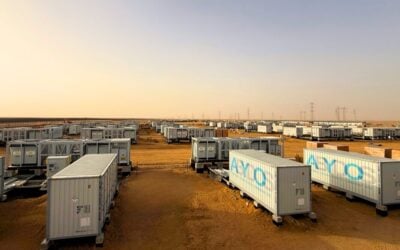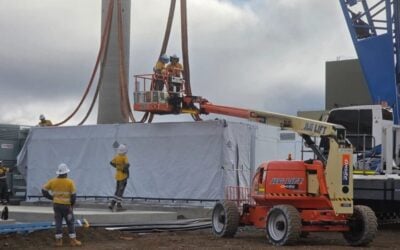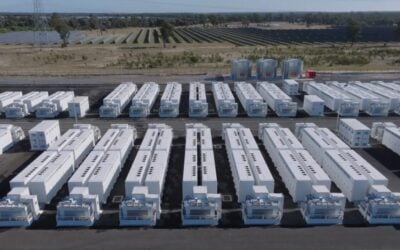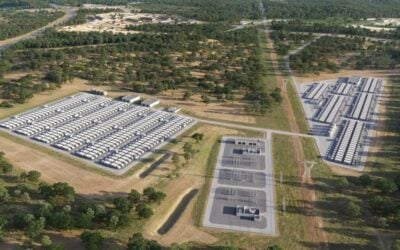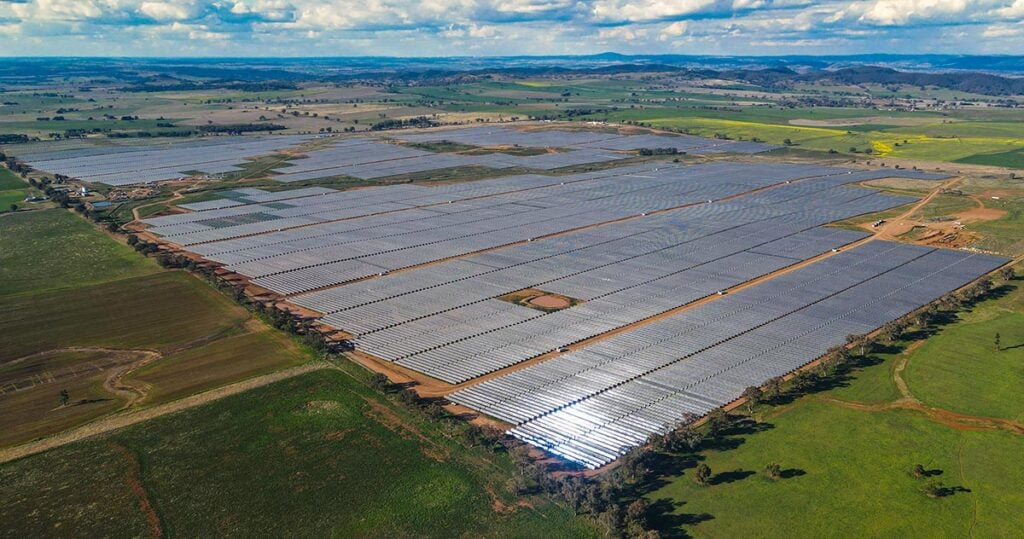
Oil & gas major TotalEnergies and Canadian Solar have received key state-level approvals for large-scale solar PV-plus-energy storage projects in New South Wales, Australia.
Our colleagues at PV Tech reported yesterday (11 November) that the state government of New South Wales (NSW) approved plans for Canadian Solar’s Gunning project 260km Southwest of Sydney.
Enjoy 12 months of exclusive analysis
- Regular insight and analysis of the industry’s biggest developments
- In-depth interviews with the industry’s leading figures
- Annual digital subscription to the PV Tech Power journal
- Discounts on Solar Media’s portfolio of events, in-person and virtual
This morning, PV Tech reported that the NSW Independent Planning Commission (IPC) has approved TotalEnergies’ Middlebrook project 22km south of the city of Tamworth.
Canadian Solar proposal includes 1.6GWh, 4-hour duration BESS
The Gunning AU$651 million (US$429 million) utility-scale solar PV power plant, which module manufacturing giant Canadian Solar is developing, will include 250MW solar PV generation capacity and a 150MW/600MWh 4-hour duration battery energy storage system (BESS) to provide grid stability on the National Electricity Market (NEM). Canadian Solar will utilise its Bifacial 690W+ modules for the project.
According to planning documents, the development will feature two 330kV transmission lines running through the site. An electrical substation will be developed, transferring electricity to transmission system operator Transgrid.
The Gunning solar PV project will have an operational lifespan of 35 years, and construction will take around 18 months to complete. It will be situated on agricultural land currently used for sheep grazing.
Paul Scully, New South Wales minister for planning and public spaces, highlighted that the project is an example of the state’s “booming” solar PV industry.
Community engagement is a key aspect of the project as with many other Australian solar PV projects. For Gunning, Canadian Solar intends to deliver AU$4.7 million to the local community over the course of its operational lifespan, and the state government will work closely with Upper Lachlan Shire Council to ensure this.
TotalEnergies project approval contingent on allaying community objection points
The New South Wales Independent Planning Commission (IPC) in Australia yesterday (11 November) granted approval for the 320MW Middlebrook solar-plus-storage project in Tamworth.
The state-significant development, located in the northeast of New South Wales and 22km south of the city of Tamworth, will feature a 320MW/780MWh battery energy storage system (BESS) co-located on the project’s site.
Planning documents for the project indicated that the project represents an investment of around AU$856 million (US$562 million) and will generate up to 400 construction jobs and 15 operational jobs.
It is also worth noting that the site location is around 27km west of the New England Renewable Energy Zone (REZ). This REZ aims to deliver 8GW of additional network capacity, supporting renewable energy generation technologies such as solar and energy storage. A scoping report was lodged in July and it is expected to attract over AU$24 billion in private investment by 2034.
The solar PV element of the project will include 750,000 solar PV modules and will generate green electricity that will connect to the National Electricity Market (NEM) via an on-site substation and an existing 330kV transmission line owned by Transgrid.
In its Statement of Reasons for Decision, the Commission panel found that the Middlebrook project is “suitable for renewable energy development given its location close to existing electricity transmission networks, topography, solar resources, avoidance of major environmental constraints, access to the state and regional road network and potential for continued use of the land for grazing”.
Despite this, the project received more than 50 public objections. To satisfy some of these, the IPC has implemented conditions the owner, TotalEnergies, will have to adhere to.
Most of these conditions are visual cues, such as ensuring vegetation screening of the BESS and substation is in place and that landowners can request vegetation screening on properties within 3km of the project.
TotalEnergies must also ensure there is a suitable decommission and rehabilitation plan in place for the project.
These stories appeared as separate items on PV Tech, our solar PV technology website. Read the originals here:
Canadian Solar granted consent for 250MW solar-plus-storage project in New South Wales, Australia
New South Wales green lights 320MW solar-plus-storage project in Australia

